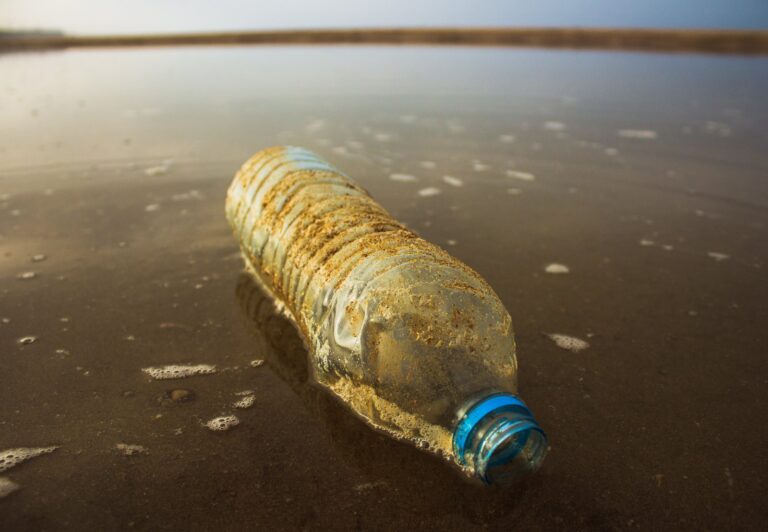Drinking water is essential for maintaining good health. It helps regulate our body temperature, aids in digestion, and supports the proper function of our organs and tissues. While tap water is the most accessible source of drinking water, many people opt for bottled water due to convenience or concerns about the quality of tap water. However, there have been concerns about the potential risks and stomach problems associated with drinking bottled water. In this article, we will explore the importance of drinking water for health and discuss the potential issues with bottled water.
I. Importance of Drinking Water for Health
Water makes up a significant portion of our body, and staying hydrated is essential for our overall health and well-being. Some of the key roles of water in our body include:
- Maintaining bodily fluids: Water helps transport nutrients, oxygen, and waste products throughout the body.
- Digestion and absorption: Water aids in the digestion and absorption of food and nutrients.
- Temperature regulation: Water helps regulate body temperature through sweat and evaporation.
- Joint lubrication: Water acts as a lubricant for our joints, reducing friction and supporting their proper function.
- Removal of waste: Water helps flush out waste products and toxins from the body through urine and sweat.
Inadequate water intake can lead to dehydration, which can cause various health issues such as fatigue, headaches, decreased cognitive function, and constipation. Therefore, it is crucial to ensure we drink enough water to maintain optimal health.
Potential Issues with Bottled Water
While bottled water may seem like a convenient and safe option, there are some potential issues to consider:
- Quality concerns: Although bottled water is regulated, some studies have shown that it may not be consistently safer or healthier than tap water. Breakdown of chemicals from the bottle materials or contamination during the bottling process can affect the quality of bottled water.
- Environmental impact: The production and disposal of plastic water bottles contribute to environmental pollution and waste. Single-use plastic bottles can take hundreds of years to decompose and often end up in landfills or oceans.
- Cost implications: Buying bottled water can be more expensive in the long run compared to tap water. This cost can add up significantly over time.
- Lack of essential minerals: Some bottled water goes through filtration processes that remove minerals naturally found in tap water. While this might not be a concern for short-term consumption, it can contribute to mineral deficiencies if bottled water is the only source of hydration over an extended period.
It is important to note that these issues with bottled water may not apply to all brands or types of bottled water. Some bottled water brands are sourced from natural springs or undergo rigorous filtration processes to ensure high quality. It is advisable to research and choose reputable brands that prioritize safety and sustainability.
In conclusion, while drinking water is essential for good health, there are potential issues associated with drinking bottled water. It is crucial to be aware of the quality and environmental implications of bottled water and consider alternative options such as tap water or filtered water. Regularly monitoring water quality and staying informed about potential risks can help ensure that our drinking water is safe and healthy.
II. Chemical Contaminants in Bottled Water
When it comes to the safety of bottled water, it’s essential to consider potential chemical contaminants that may be present. While bottled water is generally considered safe to drink, certain contaminants can find their way into the water during the bottling process or from the materials used in the bottle itself. Here are some common chemical contaminants found in bottled water and their potential health effects:
Common Chemical Contaminants in Bottled Water
1. Phthalates: Phthalates are chemicals used in the production of plastic bottles and can leach into the water over time. These chemicals have been linked to hormonal disruptions and may pose potential risks to reproductive health.
2. Bisphenol A (BPA): BPA is another chemical commonly found in plastic bottles, especially those made from polycarbonate. Similar to phthalates, BPA can leach into the water and has been associated with hormonal imbalances and developmental issues, particularly in infants and young children.
3. Antimony: Antimony is a metalloid that can be found naturally in the environment and is also used in the production of plastic bottles. Prolonged exposure to high levels of antimony may cause gastrointestinal issues, skin irritation, and may have adverse effects on the lungs and heart.
4. Arsenic: While arsenic is not commonly found in bottled water, some brands have been found to contain low levels of this naturally occurring element. Prolonged exposure to high levels of arsenic can lead to various health problems, including stomach issues, skin lesions, and an increased risk of certain types of cancer.
Health Effects of Chemical Contaminants
It’s important to note that the levels of these chemical contaminants in bottled water are generally very low and not likely to cause immediate health problems. However, long-term exposure to elevated levels may pose a risk. Here are some potential health effects associated with these chemical contaminants:
• Hormonal Disruptions: Phthalates and BPA are known to disrupt the endocrine system, potentially leading to hormonal imbalances. This can have implications for reproductive health, including fertility issues.
• Developmental Issues: BPA, in particular, has been linked to developmental problems in infants and young children. It may interfere with brain development and even lead to behavioral issues.
• Gastrointestinal Problems: Exposure to high levels of antimony and arsenic may cause stomach problems such as diarrhea, vomiting, and abdominal pain.
While these potential health effects should be taken seriously, it’s important to note that the overall risk from drinking bottled water is low. Regulatory bodies such as the U.S. Food and Drug Administration (FDA) set strict standards for bottled water quality to ensure consumer safety. Additionally, many bottled water companies use materials that are free from harmful chemicals or have significantly reduced levels of contaminants.
If you have concerns about the safety of bottled water, you can always opt for alternative sources of drinking water, such as filtered tap water or water from trusted sources. It’s also a good idea to dispose of plastic bottles properly and avoid reusing them to minimize the potential for chemical leaching.
Further information on the safety and regulation of bottled water can be found on the FDA’s official website.
III. Bacterial Contamination in Bottled Water
While bottled water is often marketed as a safer alternative to tap water, there are instances where it can still pose health risks, particularly when it comes to bacterial contamination. Here’s what you need to know about the sources of bacterial contamination in bottled water and the potential health risks associated with it.
Sources of Bacterial Contamination
1. Production Process: During the production and bottling process, there is a possibility of introducing bacteria into the water. This can occur due to unclean equipment or poor hygiene practices by workers.
2. Storage and Transportation: Bottled water can be contaminated during storage and transportation if proper temperature control measures are not followed. Higher temperatures can create an environment conducive to bacterial growth.
3. Water Source: The quality of the water source used for bottling can also contribute to bacterial contamination. If the source water is not adequately treated or monitored, it can contain harmful bacteria.
It’s important to note that not all bottled water is contaminated, and many reputable brands follow strict quality control measures to ensure the safety of their products. However, it’s still essential to be aware of the potential risks and take necessary precautions.
Health Risks of Bacterial Contamination
Drinking bottled water contaminated with bacteria can lead to various health problems, including:
1. Gastrointestinal Issues: Bacterial contamination in water can cause gastrointestinal infections, leading to symptoms such as diarrhea, abdominal pain, nausea, and vomiting.
2. Food Poisoning: Some bacteria commonly found in contaminated water, such as E. coli and Salmonella, can cause food poisoning if consumed. This can result in more severe symptoms and complications.
3. Weakened Immune System: Individuals with weakened immune systems, such as the elderly or those with underlying health conditions, may be more susceptible to bacterial infections from contaminated water.
Preventing bacterial contamination in bottled water involves a combination of proper handling, storage, and careful selection of brands that maintain high-quality standards. It’s important to check the labels and look for reputable brands that adhere to industry regulations and standards.
In conclusion, while drinking bottled water is generally safe, there is a potential risk of bacterial contamination. By understanding the sources of contamination and taking necessary precautions, such as storing the water properly and choosing reputable brands, you can minimize the risks and ensure your water is safe to drink.
IV. Plastic Bottle Concerns
When it comes to drinking bottled water, there are some concerns that have raised questions about its safety and potential health risks. In this section, we will discuss the harmful effects of BPA and phthalates, as well as the impact of plastic bottle waste on the environment.
Harmful Effects of BPA and Phthalates
One of the primary concerns with drinking bottled water is the presence of certain chemicals, namely Bisphenol A (BPA) and phthalates. BPA is a chemical used in the production of plastic bottles and can leach into the water over time. Research has shown that BPA can have several negative effects on health, including:
1. Hormonal Disruption: BPA has been found to mimic estrogen in the body, leading to hormonal imbalances and potential reproductive issues.
2. Increased Risk of Obesity: Some studies suggest that exposure to BPA may contribute to weight gain and obesity by disrupting the body’s metabolism.
Phthalates are another group of chemicals commonly found in plastics, including water bottles. They are used to increase the flexibility and durability of plastics but can also leach into the water. Similar to BPA, phthalates have been linked to various health issues, including:
1. Endocrine Disruption: Phthalates can interfere with the body’s hormone system, potentially leading to developmental and reproductive problems.
2. Increased Risk of Asthma and Allergies: Some studies have suggested a possible link between phthalate exposure and an increased risk of respiratory issues such as asthma and allergies, particularly in children.
While the overall health risks associated with BPA and phthalates are still being studied, minimizing exposure to these chemicals is generally recommended. One way to do this is by opting for BPA-free and phthalate-free plastic bottles or considering alternative water storage options.
Impact of Plastic Bottle Waste on the Environment
Aside from potential health concerns, the disposal of plastic bottles has a negative impact on the environment. Here are some key points to consider:
1. Resource Depletion: The production of plastic bottles requires significant amounts of fossil fuels, contributing to resource depletion and increasing carbon emissions.
2. Pollution and Wildlife Impact: Improperly disposed of plastic bottles often end up in landfills or as litter in rivers and oceans. This pollution not only affects natural landscapes but also poses a threat to marine life and other animals who may mistake plastic for food or become entangled in it.
3. Recycling Challenges: While recycling plastic bottles is an important step in minimizing environmental impact, it is estimated that only a small percentage actually gets recycled. This is due to challenges with collection, sorting, and the limited demand for recycled plastic.
To mitigate the environmental impact of plastic bottle waste, individuals can consider using reusable water bottles made of materials such as stainless steel or glass. These alternatives are durable, sustainable, and can help reduce the amount of plastic waste generated.
Overall, while drinking bottled water may not directly cause stomach problems, there are valid concerns related to the potential health effects of chemicals like BPA and phthalates found in plastic bottles, as well as the environmental impact of plastic waste. Making informed choices and opting for sustainable alternatives can contribute to both personal well-being and environmental conservation.
V. Safe Drinking Water Alternatives
When it comes to ensuring safe drinking water, there are several alternatives to bottled water that can help you stay hydrated without causing stomach problems. Here are some options to consider:
Filtered Tap Water Options
1. Water Filters: Investing in a good quality water filter can be a cost-effective and environmentally friendly way to ensure safe drinking water. These filters remove impurities and contaminants, such as bacteria, viruses, and heavy metals, providing you with clean and fresh-tasting tap water. There are various types of water filters available, including pitcher filters, faucet-mounted filters, and under-sink filters.
2. Reverse Osmosis Systems: Reverse osmosis (RO) systems are highly effective in removing a wide range of contaminants from tap water. These systems use a semipermeable membrane to remove impurities, producing clean and pure drinking water. While RO systems can be more expensive upfront, they offer long-term cost savings compared to purchasing bottled water.
3. Carbon Filters: Carbon filters are widely used to improve the taste and odor of tap water. These filters work by adsorbing impurities onto a carbon surface, leaving you with clean and refreshing water. Carbon filters are commonly found in pitcher filters, faucet-mounted filters, and refrigerator filters.
It’s important to note that the effectiveness of these filters may vary depending on the specific contaminants present in your tap water. Therefore, it’s recommended to choose a filter that is certified by reputable organizations, such as the National Sanitation Foundation (NSF), to ensure its performance.
Other Safe and Sustainable Water Options
1. Boiling Water: Boiling tap water is an effective way to kill bacteria, viruses, and other microorganisms that may be present. Simply bring the water to a rolling boil for at least one minute, and then let it cool before consuming. Boiled water can be stored in clean and sterile containers for later use.
2. UV Purification Systems: Ultraviolet (UV) purification systems use UV light to kill bacteria, viruses, and other harmful microorganisms in water. These systems are compact and easy to use, making them a convenient option for travelers or outdoor enthusiasts.
3. Water Distillers: Water distillers boil water and collect the resulting steam, which is then condensed back into liquid form. This process removes impurities and contaminants, providing you with clean and pure drinking water. Water distillers can be purchased for home use or used in portable units.
It’s important to be mindful of the source and quality of the water you consume, regardless of the method you choose. If you’re unsure about the safety of your tap water, you can contact your local water utility for information about water quality reports and potential contaminants.
By exploring these safe and sustainable drinking water alternatives, you can reduce your reliance on bottled water and minimize the risk of stomach problems associated with it. Keeping yourself hydrated with clean and safe water is essential for maintaining good health and well-being.
VI. Understanding the Risks of Bottled Water
While many people rely on bottled water for its convenience and perceived cleanliness, it is essential to understand the potential risks associated with its consumption:
1. Bacterial Contamination: Despite the belief that bottled water is safer than tap water, it is not immune to bacterial contamination. Improper handling and storage of bottles can lead to the growth of harmful bacteria.
2. Chemical Contamination: Plastic bottles can release chemicals such as phthalates and bisphenol A (BPA) into the water, especially when exposed to heat or sunlight. These chemicals have been linked to various health issues.
3. Environmental Impact: The production, transportation, and disposal of plastic bottles contribute to pollution and the depletion of natural resources. Choosing alternative sources of water can help reduce our environmental footprint.
Recommendations for Healthy Water Consumption
To minimize the risk of stomach problems and promote overall health, consider the following recommendations for water consumption:
1. Tap Water Testing: If you are concerned about the quality of your tap water, consider having it tested by a certified laboratory to ensure its safety. In many cases, tap water can be a safe and cost-effective alternative to bottled water.
2. Use a Water Filter: Investing in a quality water filter can help remove contaminants from tap water, providing you with clean and safe drinking water. Look for filters that are certified by reputable organizations.
3. Reusable Water Bottles: Instead of relying on single-use plastic bottles, opt for reusable water bottles made of materials such as stainless steel or glass. These bottles are not only more eco-friendly but also reduce the risk of chemical contamination.
4. Hydration Habits: Ensure that you stay adequately hydrated throughout the day by drinking enough water. It is recommended to drink at least eight glasses of water per day, but individual needs may vary.
5. Water Sources: Explore alternative sources of water, such as filtered water dispensers or water fountains, to reduce your reliance on bottled water. Many public places now offer refill stations for reusable water bottles.
By understanding the potential risks associated with bottled water and making informed choices about our water consumption, we can help protect our health and the environment. It is crucial to prioritize clean and safe drinking water for our well-being.
For more information about the risks and benefits of drinking water, you can refer to reliable sources such as the World Health Organization or Environmental Protection Agency. Keep in mind that staying informed and making conscious choices can go a long way in maintaining a healthy lifestyle.




